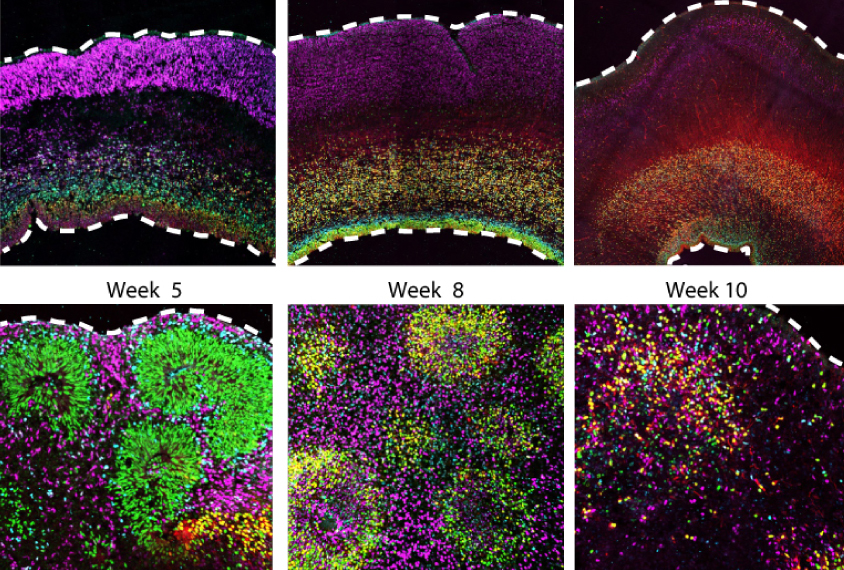Brain
Recent articles
How the cerebellum is linked to autism
In this video, professors Sam Wang and Peter Tsai explain the role of the ‘little brain’ in cognition, social skills, emotion control and repetitive behaviors.
How the cerebellum is linked to autism
In this video, professors Sam Wang and Peter Tsai explain the role of the ‘little brain’ in cognition, social skills, emotion control and repetitive behaviors.
Cell stress may sap organoids’ usefulness in autism research
Some cells in brain organoids — 3D clusters of cultured brain cells — fail to develop fully.

Cell stress may sap organoids’ usefulness in autism research
Some cells in brain organoids — 3D clusters of cultured brain cells — fail to develop fully.
Explore more from The Transmitter
Dendrites help neuroscientists see the forest for the trees
Dendritic arbors provide just the right scale to study how individual neurons reciprocally interact with their broader circuitry—and are our best bet to bridge cellular and systems neuroscience.

Dendrites help neuroscientists see the forest for the trees
Dendritic arbors provide just the right scale to study how individual neurons reciprocally interact with their broader circuitry—and are our best bet to bridge cellular and systems neuroscience.
Two primate centers drop ‘primate’ from their name
The Washington and Tulane National Biomedical Research Centers—formerly called National Primate Research Centers—say they made the change to better reflect the breadth of research performed at the centers.

Two primate centers drop ‘primate’ from their name
The Washington and Tulane National Biomedical Research Centers—formerly called National Primate Research Centers—say they made the change to better reflect the breadth of research performed at the centers.
Post-infection immune conflict alters fetal development in some male mice
The immune conflict between dam and fetus could help explain sex differences in neurodevelopmental conditions.

Post-infection immune conflict alters fetal development in some male mice
The immune conflict between dam and fetus could help explain sex differences in neurodevelopmental conditions.